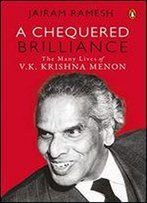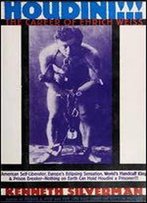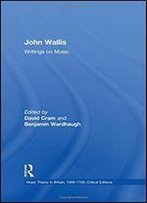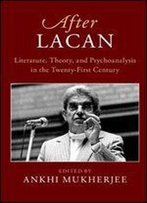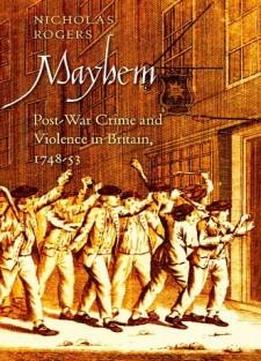
Mayhem: Post-war Crime And Violence In Britain, 1748-53 (the Lewis Walpole Series In Eighteenth-c)
by Nicholas Rogers /
2013 / English / PDF
4.5 MB Download
After the end of the War of Austrian Succession in 1748,
thousands of unemployed and sometimes unemployable soldiers and
seamen found themselves on the streets of London ready to roister
the town and steal when necessary. In this fascinating book
Nicholas Rogers explores the moral panic associated with this
rapid demobilization.
After the end of the War of Austrian Succession in 1748,
thousands of unemployed and sometimes unemployable soldiers and
seamen found themselves on the streets of London ready to roister
the town and steal when necessary. In this fascinating book
Nicholas Rogers explores the moral panic associated with this
rapid demobilization.
Through interlocking stories of duels, highway robberies,
smuggling, riots, binge drinking, and even two earthquakes,
Rogers captures the anxieties of a half-decade and assesses the
social reforms contemporaries framed and imagined to deal with
the crisis. He argues that in addressing these events,
contemporaries not only endorsed the traditional sanction of
public executions, but wrestled with the problem of expanding the
parameters of government to include practices and institutions we
now regard as commonplace: censuses, the regularization of
marriage through uniform methods of registration, penitentiaries
and police forces.
Through interlocking stories of duels, highway robberies,
smuggling, riots, binge drinking, and even two earthquakes,
Rogers captures the anxieties of a half-decade and assesses the
social reforms contemporaries framed and imagined to deal with
the crisis. He argues that in addressing these events,
contemporaries not only endorsed the traditional sanction of
public executions, but wrestled with the problem of expanding the
parameters of government to include practices and institutions we
now regard as commonplace: censuses, the regularization of
marriage through uniform methods of registration, penitentiaries
and police forces.




